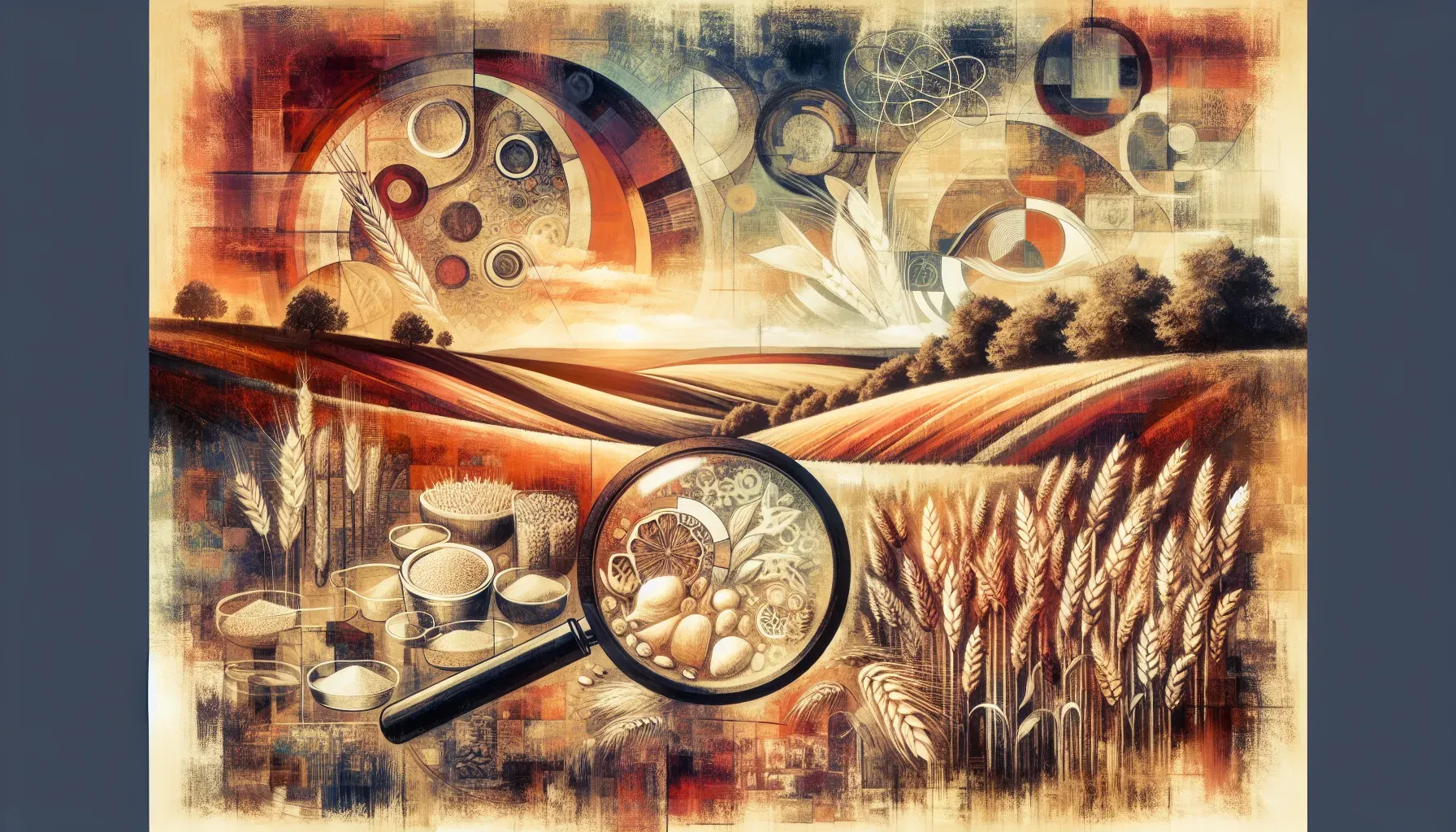The Gluten-Free Diet Demystified for Non-Celiacs: Is It Worth It?

The Peppino Blog understands the growing interest in gluten-free diets, even among individuals without celiac disease. While some adopt this diet due to genuine health concerns, others may do so based on misconceptions or trends. Let's delve into the gluten-free conundrum, shedding light on its impact and providing valuable insights for our health-conscious readers.
Gluten is a composite of storage proteins found in wheat, barley, rye, and their derivatives. It provides the elastic texture to dough, contributing to the chewy texture of bread and other baked goods. However, for individuals with celiac disease or gluten sensitivity, gluten can trigger adverse bodily reactions.
Understanding Gluten and Its Effects on Health
In celiac disease, consuming gluten leads to an immune response that damages the small intestine's lining. This, in turn, hampers the absorption of nutrients from food. On the other hand, non-celiac gluten sensitivity triggers symptoms like bloating, diarrhea, and abdominal pain without causing the same intestinal damage seen in celiac disease.
What is gluten and where is it found?
It's crucial to differentiate between gluten sensitivity and celiac disease as the repercussions of misdiagnosis are significant. Celiac disease necessitates strict avoidance of gluten due to the potential long-term complications from untreated symptoms. Conversely, individuals with gluten sensitivity may find relief through a reduction of gluten in their diet but don't require complete avoidance as in celiac disease.
Related Article: Mindful Nutrition: The Art of Eating Well for Holistic Health
Differentiating Gluten Sensitivity and Celiac Disease
For those without a medical need for a gluten-free diet, eliminating gluten-containing grains like wheat can lead to nutritional deficiencies. Whole grains such as wheat provide essential nutrients like fiber, B vitamins, and iron which are often lacking in gluten-free products. Consequently, adopting a gluten-free diet without professional guidance can inadvertently compromise nutritional balance.
Embracing a gluten-free lifestyle without medical necessity can significantly impact one's finances. Gluten-free products often come with a higher price tag compared to their gluten-containing counterparts. The cost disparity becomes more pronounced when considering that various naturally gluten-free whole foods can be overlooked in favor of processed specialty products.
Nutritional Risks of Going Gluten-Free Without Need
There's a common misconception that adopting a gluten-free diet leads to weight loss, regardless of underlying health conditions. However, the weight loss observed by some upon starting a gluten-free diet typically stems from an overall reduction in calorie intake rather than the absence of gluten itself. It's important for individuals to understand that weight management entails balanced nutrition and portion control rather than solely focusing on eliminating specific ingredients like gluten.
Related Article: Forgotten Figures in Nutritional Wellness: Reviving Legacies of Nutrient Pioneers for Modern Diets
The Financial Impact of a Gluten-Free Lifestyle
Instead of relying solely on processed gluten-free alternatives which may be lacking in nutrients or high in added sugars and fats, individuals can pivot towards healthier options. Embracing naturally gluten-free whole foods such as quinoa, brown rice, fruits, vegetables, legumes, nuts, and seeds provides a nutrient-rich foundation for a balanced diet. This approach not only ensures nutritional adequacy but also supports overall well-being.
Debunking Myths: Gluten-Free Diet and Weight Loss
If any individual suspects they have a sensitivity to gluten or suspect celiac disease, seeking professional medical advice is imperative. Physicians can conduct specific tests including blood tests and endoscopic procedures to diagnose celiac disease accurately. For non-celiac gluten sensitivity, diagnosis may involve excluding other conditions and conducting controlled dietary assessments under medical supervision.
Ultimately, the decision to adopt a gluten-free diet should be informed by evidence-based medical advice. For those experiencing symptoms suggesting sensitivity to gluten or suspected celiac disease, seeking professional diagnosis and dietary guidance is paramount. It’s crucial for individuals without medical necessity to critically evaluate the motivations behind considering a gluten-free diet and weigh out its implications on nutrition and lifestyle.
Related Article: Snack Smart: Wholesome Bites for Energy and Vitality
Healthier Choices Beyond Processed Gluten-Free Products
In conclusion, while a gluten-free diet is necessary for individuals with celiac disease or non-celiac gluten sensitivity, it may not offer similar benefits to those without these conditions. By understanding the nuances and implications of going gluten-free unnecessarily, individuals can make informed decisions about their dietary choices. The Peppino Blog encourages our readers to prioritize evidence-based approaches to health and wellness tailored to their unique needs.
Frequently Asked Questions
Gluten is a group of proteins found in wheat, barley, and rye that gives dough its elasticity. For individuals with celiac disease or gluten sensitivity, gluten can cause serious health issues, including damage to the small intestine and symptoms like bloating and abdominal pain. Understanding gluten's effects is crucial for those with sensitivities.
A gluten-free diet is essential for individuals diagnosed with celiac disease or non-celiac gluten sensitivity. For others, it may not provide health benefits and could lead to nutritional deficiencies. It's important to seek medical advice before making dietary changes to ensure that any decision is based on individual health needs.
Eliminating gluten-containing grains without medical necessity can lead to nutritional deficiencies, as these grains provide essential nutrients like fiber and B vitamins. Many gluten-free products lack these nutrients. Therefore, it's vital to maintain a balanced diet rich in whole foods to avoid compromising nutritional health.
Check Out These Related Articles

Balanced Eating Unveiled: What I Wish I Knew About Nutrition Fundamentals

Crafting a Career in Nutritional Counseling: A Guide to Becoming a Dietitian

The Art of Crafting Nutrient-Dense Snacks for Energy Boosting
